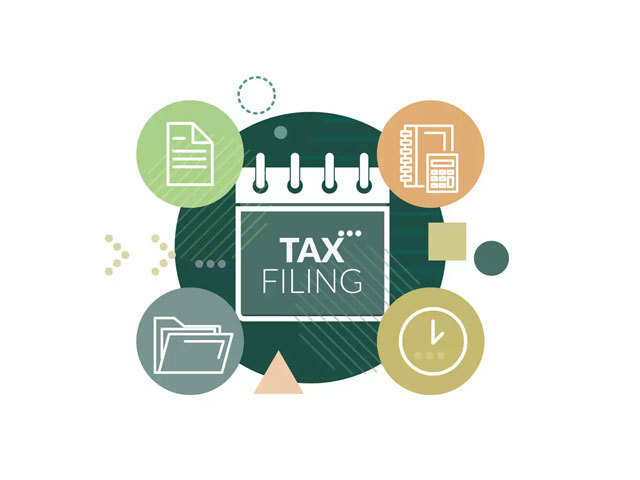Important things to keep in mind while filing your income tax return for the tax year 2022–2023

In circumstances where a tax audit is not necessary, the deadline of July 31, 2022, for filing the annual individual income tax return for the tax year 2021–2022 is rapidly approaching. Understanding the components required to complete a personal tax return in India is crucial.
While there are many important factors to keep in mind while completing a proper income tax return in India, we’ll concentrate on a few major ones in this post.
Tax reporting is necessary.
If one or more of the following requirements are met, an individual may still be mandated to submit his or her income tax return, even if the taxable income in India is below the threshold level or if there is no income in India.
- deposit amount or total deposits above INR 1 crore made in one or more current accounts during the preceding year, or
- incurred expenses for travel to a foreign nation, whether for oneself or another person, totaling more than INR 2 lakhs,
- incurred expenses of over INR 1 lakh on energy use in the preceding year, either individually or collectively.
- If the business’s overall sales, turnover, or gross revenues, as applicable, exceed INR 60 lakh during the applicable tax year,
- If the total gross income from a profession exceeds 10 lakh Indian rupees during the applicable tax year,
- If the total amount of tax deducted at source and tax collected at source for a tax year is INR 25,000 or more (INR 50,000 for individual residents over 60), or
- During the tax year, a person has at least INR 50 lakh deposited in one or more savings accounts.
It is crucial to keep in mind that even if a person’s taxable income in India is below the level or if they have no income at all, they will still be required to file income taxes in India if they have foreign assets outside of the country.
Significant dates
An ITR will be considered a delayed return if it is not submitted by July 31, 2022. It may be submitted at a later time, but not beyond December 31, 2022. The deadline for amending a return that was filed before December 31, 2022, is that same day.
However, any loss incurred due to a capital loss, etc., in a late tax return cannot be carried forward for offset in a subsequent year. There may be additional interest fees for reporting the ITR late if there is any outstanding tax liability.
If a tax return is submitted after July 31st, each person will be subject to an extra cost of up to INR 5,000. The additional fees charged, however, must not exceed INR 1,000 if the person filing the return’s total income does not exceed INR 5 lakh. Last but not least, if a tax audit is necessary, the income tax return must be filed by October 31, 2022.
tax system
You can choose to re-select the new or old tax regime when filing your return. The computation method will be impacted by the choice of the new or old tax system because numerous exemptions and deductions are prohibited under the new tax regime.
Salary earners have the option of choosing the old or new tax system each year. The choice of the tax system, however, may only be made once by those who are conducting business and can only be altered once in the succeeding years.
The calculation, completing the right tax form and reporting
An individual must select the appropriate income tax return form, or ITR form, depending on the kind of income, the amount of income, and other relevant factors (i.e., ITR 1, ITR 2, etc).
Both the ITR and an accurate income computation are crucial. All income, including that which is expressly exempt from taxes or which is subject to a reduced rate of taxation under the income tax laws, must be duly taxed. It is crucial to consider the correct tax deduction at source as well as any advance taxes that have already been paid. Any underpayment of tax shall be deposited together with any applicable interest and penalties (if any).
The accurate reporting of all incomes, including salaries, interest incomes, dividends, capital gains, rental incomes, and interest on an employee’s contribution to the Employee Provident Fund (EPF) that exceeds INR 250,000 per year, among others, must be based on legally acceptable supporting documentation, such as bank account statements, annual withholding certificates from the employer, capital gains statements, etc.
When reporting pay income on the salary schedule, a thorough study of the salary and benefits, as well as any income from a retirement benefits account kept in a foreign notification nation, should be completed.
Any deductions must be supported by valid receipts, certificates issued in the right format for charitable contributions, housing loan certificates, and other documentation. Deductions for charitable contributions and insurance premiums are two examples.
One must be careful, though, as several deductions and exemptions cannot be used if a person elects to be subject to the new tax system. For instance, the new tax system does not allow for the deduction of gifts under section 80 G of the Income Tax Act of 1961 or interest income under section 80 TTA.
The indicated assets and liabilities (as of the last day of the tax year) must also be disclosed in the ITR form if an individual’s total income for the tax year exceeds INR 50 lakh. Additionally, a person must accurately state if they held any directorships or unlisted shares during the tax year.
Any tax-deferred perquisite income from qualifying start-ups that is tied to an ESOP must be included in the ITR form according to the designated schedule. In addition to this, exempt income, carryover, and carried-forwardcarried-forward losses should also be meticulously filled out.
You must also provide the necessary bank account details and have your bank account pre-validated to get any income tax refund. The Annual Information Statement (AIS) and the Tax Information Summary (TIS)
The tax authorities recently implemented a functional improvement to facilitate quick and simple compliance:
An “AIS” is a thorough statement that includes information on all of the financial transactions that a person made during a tax year. It includes details on earnings from a variety of sources, including salaries, dividends, interest from savings accounts, recurring deposits, sales and purchases of equity shares, bonds, mutual funds, and so forth. The document also includes details on source tax deductions and source tax collections.
A taxpayer’s TIS is a category-by-category aggregated information summary. For instance, a concisely summarized version of the total amount of interest, dividends, etc. from various accounts and shares is supplied.
In addition to providing the assesse with a checklist to ensure that no reportable revenue has been missed, these AIS and TIS are used to consolidate transactions, income, and taxes for a tax year into a single statement.
After reconciling AIS, TIS, and Form 26 AS, an individual must submit the pertinent Income Tax Return (statement providing information about taxes deducted on various earnings, details of other pre-paid taxes, details of other special transactions, etc.). These forms must be received through the e-filing site before an income tax return is submitted.
Globally mobile personnel
It is crucial to establish the right residence status for internationally mobile personnel based on their actual presence in India. It is possible to establish the tax consequences in India based on their residency status.
Foreign assets and income
Additionally, the law requires those who qualify as regular Indian citizens and have assets and income from abroad to declare them in the relevant schedules on their ITR forms.
If overseas assets and liabilities are not revealed in the ITR, the Black Money (Undisclosed Overseas Income and Assets) and Imposition of Tax Act, 2015 may also have an impact. This need is essential whenever it applies.
Understanding taxes
If a foreign tax credit has been claimed in line with a double tax avoidance agreement or tax treaty between India and another country, Form 67 must be produced before filing an income tax return.
You must get a tax residence certificate from the other country and, if appropriate, accurately fill out the related field on the income tax return form to qualify for any additional benefits, such as a lower tax rate on interest income due to a tax treaty.
One needs to be aware of these tax return filing components to complete a correct and accurate tax return on time and in compliance with the tax rules. This also includes the repercussions of failing to file tax returns on time or at all.
Additionally, the law requires those who qualify as regular Indian citizens and have assets and income from abroad to declare them in the relevant schedules on their ITR forms.
If overseas assets and liabilities are not revealed in the ITR, the Black Money (Undisclosed Overseas Income and Assets) and Imposition of Tax Act, 2015 may also have an impact. This need is essential whenever it applies.




